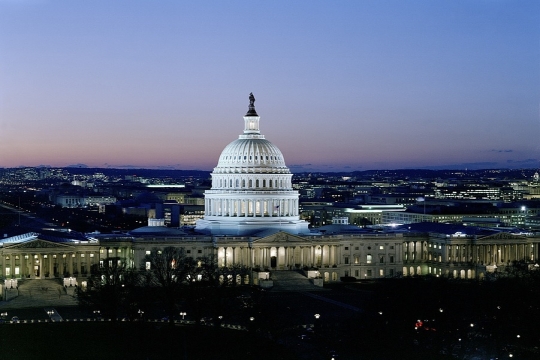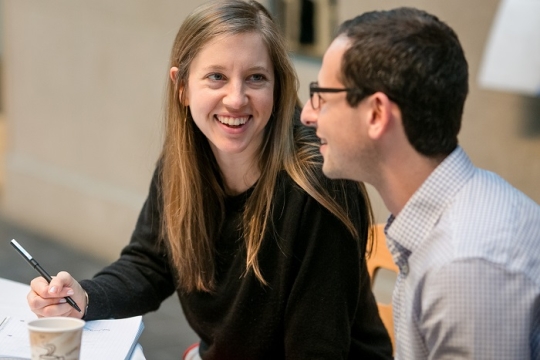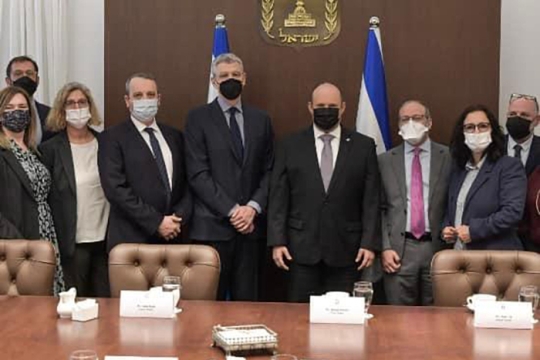As the only thriving democracy in the Middle East, Israel is a beacon of light in a region often filled with despair. And yet, despite its democratic nature, when it comes to religious pluralism, Israel has a long way to go. In 1947, Israel adopted the Ottoman Millet system, formerly in place under the British Mandate, which allowed for religious groups within Israel to establish their own legal systems governing personal status laws (marriage, divorce, alimony, etc.) The URJ notes that there are presently 13 recognized religions in Israel, including Judaism, Islam, Druze, and several Christian denominations. Within the Jewish tradition, however, only Orthodox Judaism is recognized by the state under the Ministry of Religious Affairs. All other Jewish denominations, including Reform and Conservative, function under the Ministry of Culture and Sports.
The founders of Israel believed that by giving the Haredim (ultra-Orthodox) authority over personal status issues, it would help ensure the cohesiveness and strength of the Jewish majority in Israel. The ultra-Orthodox in Israel have used this authority to mandate that personal status ceremonies follow halachic law. Thus, Jews are only permitted to marry other Jews and Israel recognizes only heterosexual marriages, among other restrictions.
According to the Israeli Central Bureau of Statistics, Haredi Jews make up only 12 percent of the population of Israel, while all other Jews constitute nearly 63 percent of the population. Despite being in the minority, however, the ultra-orthodox Rabbinate controls practically all personal status law for Israeli Jews. Naturally, this has caused significant problems for the Conservative, Reform, secular, and other Jewish communities in Israel.
As a result, many Israelis now choose to marry outside of the country. For example, Anat Hoffman, Executive Director of IRAC, described in a compelling article the marriage of her son outside of Israel due to these restrictive personal status laws. Hoffman reports that leaving the country is the only way for Israeli Jews “to marry outside of the framework of the ultra-Orthodox Chief Rabbinate.” Consequently, there have been many calls for reform of the personal status laws and Millet system. Last year, Finance Minister Yair Lapid and Labor Party Chairwoman Shelly Yachimovich called for official recognition of the non-Orthodox streams of Judaism, as well as of civil marriage, same-sex marriage, and women’s equality within the Israeli Jewish community. Indeed, a majority of Israeli Jews feel discriminated against by the present personal status laws. Moreover, most Jews (particularly non-Orthodox Jews) in the diaspora want more religious pluralism in Israel and have increasingly been making their voices heard. The Religious Action Center of Reform Judaism, for example, continuously works for religious pluralism in Israel and has helped bring about positive changes.
As with every true democracy, the legitimacy of Israel’s democratic character depends on a vibrant degree of religious pluralism. It is an issue important to Jews the world over.
Hannah Ehlers is a rising junior at American University in Washington, D.C. She is a Jewish Studies major and German Area Studies minor. Originally from outside of Philadelphia, Hannah grew up attending Congregation Beth Or in Maple Glen, Pennsylvania. As part of Machon Kaplan, Hannah is interning this summer with Americans for Peace Now.
Related Posts
Image

The Injustice of False Choices
Congress is currently working to pass a funding bill that would address a wide range of global and domestic efforts. Including military aid for Israel, humanitarian aid for Palestinians, and $1 billion for the Nonprofit Security Grant Program, which will help enhance the safety of our congregations across the country.
Image

Civil Discourse – How to Facilitate Productive Conversations about Hard Topics
The guide below offers some frameworks and shared agreements for structured group conversation as well as some suggested questions.
Image

Shabbat Message: A Galvanizing Visit to Israel That Fills Me With Encouragement
In meetings with the President of Israel, Isaac Herzog, Defense Minister Benny Gantz, Finance Minister Avigdor Lieberman, Transportation Minister Merav Michaeli, and Foreign Minister and Alternate Prime Minister Yair Lapid, we discussed the crisis in Ukraine, the future of the Kotel, ensuring more funding and rights for non-Orthodox Jews, combatting racism, and stopping extremist violence against Palestinians, in addition to other pressing issues.
